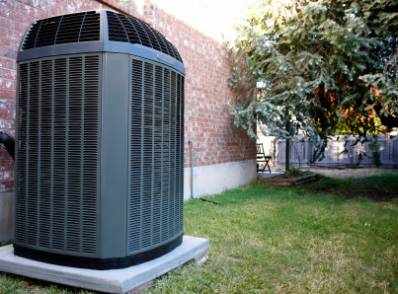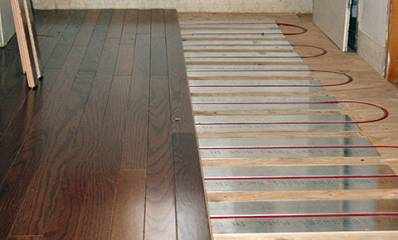For decades, homeowners have sought ways to maintain a cozy and warm home during the chilly seasons without breaking the bank. Given the evolution of technology and the rise of energy efficiency, a simple and cost-effective solution lies within electric home heating systems. This article seeks to expand on the most economical electric home heating systems available in the market.
Overview of Economical Electric Home Heating Systems
The introduction of electric heating systems has revolutionized household heating by providing efficient, reliable, and economical solutions. These systems work by converting electric energy into heat and distributing it throughout your living space. They are not only easy to install and maintain, but also eco-friendly as they produce no direct emissions.
- Electric Radiator Heating: These systems deliver heat through radiators installed in each room. They are cost-effective due to their low installation costs and energy-efficient performance.
- Electric Heat Pumps: These systems extract heat from the outside air, even in winter, concentrating it to provide warmth. Heat pumps have high upfront costs but can save significant amounts of money in the long run due to their efficiency.
- Underfloor Electric Heating: This system uses heating cables installed beneath your floors, providing radiant heat. It’s efficient, comfortable, and out of sight, adding to its appeal.
- Storage Heaters: Common in colder climates, electric storage heaters store heat during off-peak hours when electricity is cheaper, and release it when needed. They are a cost-effective option for homes with time-of-use metering.
In considering these options, remember to choose the one that best suits your home size, climate, and budget to ensure maximum utility at an optimal cost.
Electric Radiators
Electric radiators are often considered the most cost-effective solution for home heating. These systems offer several benefits that make them an appealing choice for homeowners seeking an economical and efficient heating solution.

Advantages of Electric Radiators
Energy Efficiency: Electric radiators convert nearly all electrical energy consumed into heat, making them extremely energy efficient. This high level of efficiency results in reduced energy consumption, thereby saving money on electricity bills.
Easy Installation and Operation: Unlike some heating systems, electric radiators do not require complex piping or ductwork. They can be easily installed and operated, providing immediate warmth to your living space.
Individual Room Heating: Each electric radiator operates independently, allowing homeowners to adjust the heating needs for different rooms. This helps in maintaining a comfortable temperature while saving energy in less used spaces.
Different Types of Electric Radiators
As technology advances, various types of electric radiators have come into the market, offering unique features and benefits.
Oil-Filled Radiators: These radiators use electricity to heat up the oil within, and then the heat is radiated outwards. Examples include De’Longhi and Dimplex models.
Panel Heaters: Panel radiators are thin, lightweight, and often wall-mounted. They heat up quickly and are suitable for small rooms.
Ceramic Heaters: Ceramic electric radiators distribute heat evenly while consuming less energy. They are often safer as the ceramic part of the heater doesn’t get as hot to touch.
Smart Radiators: A modern innovation, smart radiators can be controlled remotely using smartphone apps, offering consumers even greater control over their energy consumption and costs.
Before you choose an electric radiator, consider your home’s specific needs, the size of your space, and your intended usage to get the most value for your money.
Electric Underfloor Heating
Benefits of Electric Underfloor Heating
If you are looking for the utmost comfort and significant savings, consider opting for electric underfloor heating. This contemporary approach to home heating has plenty of benefits.
Energy Efficiency: Electric underfloor heating systems distribute heat uniformly across the floor, reducing the energy needed for heating and offering potential savings on electricity bills.
Comfort and Consistency: By providing consistent heat from the floor up, it ensures maximum comfort in your living spaces. It also eliminates cold spots, resulting in a warmer and cozier home environment.
Silent and Invisible: The underfloor heating system is noise-free and hidden beneath the floor, providing efficient heating without interfering with your home’s aesthetics.
Easy Installation: They are easier to install than you might think. Depending on your floor type, the installation process can be quite straightforward.
Choosing the Right Underfloor Heating System
A few factors to consider when choosing the right electric underfloor heating system might include the size of your space, floor type, insulation, and budget.
Heating Mats: Ideal for larger areas, heating mats are simple to install, especially in newly constructed spaces.
Heating Cables: More flexible, heating cables are perfect for small or irregularly shaped rooms.
In-Screed Cables: These are best for projects where a new screed floor is being laid.
To conclude, both underfloor heating and electric radiators make efficient, economical, and comfortable home heating options. Consider your individual requirements and preferences when deciding on the right system for your home.
Electric Furnaces
If you are contemplating an economical and reliable home heating system, electric furnaces could be an excellent pick. They are becoming increasingly popular for their advantages like affordable running costs, environment-friendliness, and high energy efficiency.
Features of Electric Furnaces
Electric furnaces boast several unique features enhancing their overall appeal. Firstly, compared to gas counterparts, electric models require less initial investment. Moreover, they are safer as there’s no possibility of carbon monoxide exposure.
They operate quietly and smoothly, ensuring a comforting heating experience that doesn’t disrupt your peace. Furthermore, they are eco-friendly and efficient, with nearly 100% of the electricity converted into heat, minimizing energy waste.
- Maintenance: Electric furnaces require less maintenance, and potential repairs are usually less complicated, translating to savings in time and cost.
- Longevity: With proper maintenance, electric furnaces have a longer lifespan, ranging from 15 to 30 years, offering good value on your investment.
Comparing Different Models Available
When shopping for an electric furnace, it is advisable to compare various models for features, efficiency, and cost. For example, model A may be energy star certified, promising lower energy bills but at a higher initial cost compared to model B which is less energy-efficient but affordable upfront.
Brands like Trane and Lennox offer a variety of furnaces catering to different budgets and requirements. Reading reviews and seeking professional guidance can aid in making an informed choice.
To wrap up, electric furnaces could be an economical and practical choice for your home heating needs, delivering comfort, efficiency, and value.
Convection Heaters
Homeowners seeking a cost-effective solution for their heating needs should consider the notable benefits of convection heaters. They enjoy wide popularity for their efficiency, affordability, and overall performance as electric home heating systems.
Efficiency and Cost-Effectiveness of Convection Heaters
Convection heaters operate by producing warm air that rises, and cool air that sinks, creating a constant flow of air circulation, hence heating a room evenly and rapidly. With their capacity to maintain uniform temperature and reduce running time, these heaters are significantly energy-efficient, paring down electricity bills.
Of importance to note, some convection heaters come equipped with features like programmable timers and thermostats, adding to their efficiency and cost-effectiveness. The initial cost may be higher than other space heaters, but their economical operation offsets that, proving cost-effective in the long run.
Popular Convection Heater Brands
Popular brands in the convection heater market include De’Longhi, Dimplex, and Honeywell. De’Longhi excels in crafting sleek and effective convection heaters that stand out for their safety and energy-saving features. Dimplex, on the other hand, is known for its environmentally friendly design, performance, and durability. Meanwhile, Honeywell’s reputation for creating reliable, practical, and easy-to-use heaters remains unmatched.
In conclusion, if you are contemplating heating solutions that are economical, efficient, in addition to being friendly to the environment, you just might find your perfect fit in convection heaters. Always consider your unique needs and budget to gauge the best option for your space.
Conclusion
Choosing an efficient and economical home heating system is of paramount importance, especially given the inevitable rise in energy costs. By selecting the right heating device, homeowners can create a warm, comfortable environment without racking up hefty power bills. There is, therefore, an increasing demand for heating solutions that deliver optimal performance at an affordable cost.
Key Factors to Consider When Selecting an Economical Electric Home Heating System
When it comes to selecting the most economical home heating system, several factors should be carefully considered.
Energy Efficiency: Choose a heating system that offers high energy efficiency. Energy-efficient systems have less impact on the environment and can considerably reduce energy costs.
Low Running Costs: Consider the cost of running the system. Devices like convection heaters, with features such as programmable timers or thermostats, can help maintain a comfortable temperature while also saving on electricity bills.
Fit for Purpose: The heating system should be suited to the size and layout of the home. For instance, a compact, portable heater might be a cost-effective solution for a small space, but a larger home might require a more powerful system.
Value for Money: While the initial cost of the heating system is a crucial factor, it is equally important to consider the durability and longevity of the product. A system that requires frequent repairs or replacement could end up costing more in the long term.
Remember, the goal is not just to find an economical heating system but one that offers comfort, efficiency, and value for money while ensuring a cozy ambiance in your home during cold seasons






